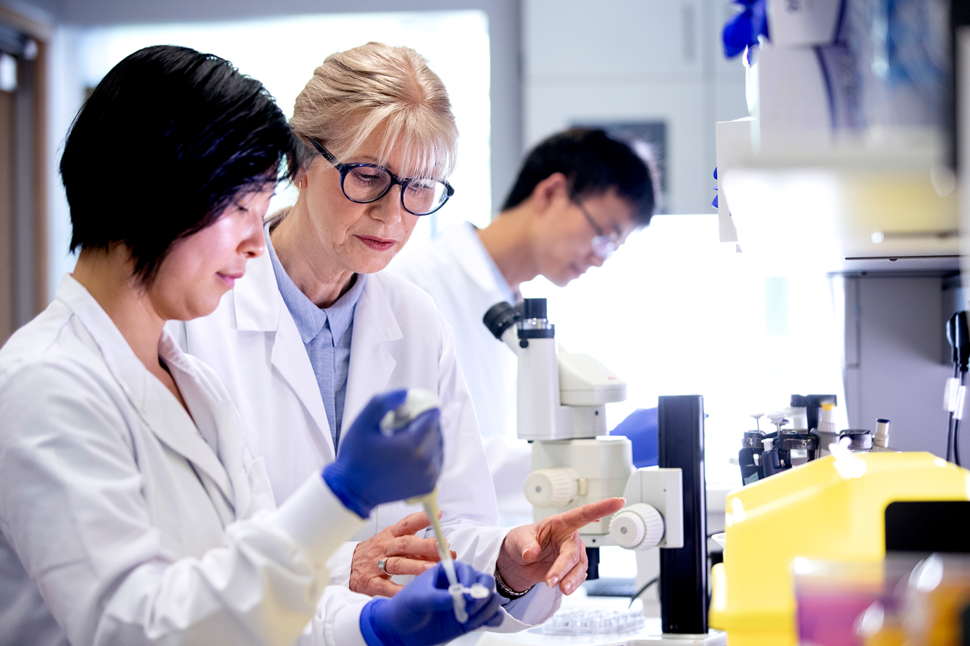Biospecimens, such as tumor tissues and blood, are essential for the study of cancer. They are a key component of scientific breakthroughs that lead to better cancer diagnostic tests and treatments.
NCI’s Biorepositories and Biospecimen Research Branch (BBRB) is an international leader in research and policy activities related to biospecimen collection, processing, and storage. These activities are collectively known as biobanking. BBRB supports medical discovery and precision medicine by providing leadership, tools, and resources to the biobanking community. BBRB also provides input on policy related to biobanking and supports the availability of biospecimens for research.
Research Areas
BBRB develops standardized procedures for biospecimen science and research; conducts and sponsors research on the effects of biospecimen preanalytical factors; leads and supports major scientific initiatives requiring high-quality biospecimens; and supports investigations into the ethical, legal, and social issues concerning biospecimen collection and use.
Examples of how BBRB works to improve the usefulness and reproducibility of scientific research to expedite more effective treatments into the clinic are found below.
Biospecimen Research Database (BRD)
Biospecimen Evidence-Based Best Practices
Genotype Tissue-Expression Biobank
Staff Publications
Read publications from BBRB on Biospecimen Science, Best Practices, GTEx, BPV, Ethical, Legal and Social Implications, and more.
Selected Initiative:
Cooperative Agreement: Integrating Biospecimen Science Approaches into Clinical Assay Development - Next application due date: September 10th, 2025
The U01 Program supports extramural research to investigate and mitigate challenges facing clinical assay development and subsequent analytical validation due to preanalytical variability in tumor tissue biopsies and liquid biopsies. Investigator-designed experiments explore how different biospecimen preanalytical conditions affect emerging and clinically relevant biomarkers quantified by a variety of testing platforms. The results from this program will improve the understanding of how analytical quantification of clinically relevant biomarkers is affected by variation in biospecimen collection, processing, and storage procedures. The overall goal is to expedite biomarker clinical assay development through evidence-based standardization of biopsy handling practices.
See details of the opportunity and all funded projects that have been part of this initiative on NIH RePORTER.
See the Cancer Diagnosis Program and Innovative Molecular Analysis Technologies (IMAT) for complementary funding opportunities.
